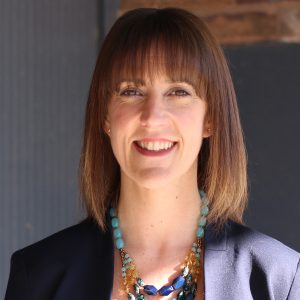Jimmy Kimmel’s very personal and heartfelt story of his newest family member and ultimate plea for health insurance hit us all in the gut. Whether we know someone who has faced a similar challenge or not, Jimmy made it real. He became someone we know – not just a TV personality.
In a clip now watched more than seven million times in just three days, Kimmel began his monologue on Monday night with news of his newborn son and his experience with a very scary heart disease (luckily diagnosed by a perceptive nurse), as well as a new perspective on the national conversation about healthcare and insurance.
This got me thinking back to my days as a local congressman’s press secretary intern in 2005 and how communication among us has fundamentally changed since those days. When I was on Capital Hill, congress was working on the education and roll out of high deductible health insurance and health savings accounts. I fielded calls for a solid three months, from people of all political affiliations, about personal stories just like Kimmel’s. While each story was completely unique, they were all connected by the need for solutions. Each one grabbed ahold of my heart and renewed my passion and purpose in making sure these voices were heard. But as I worked with the legislative assistant who was fighting for reform, I quickly realized no individual media outlet, politician or company could ever communicate these vast stories.
Social media and the internet were popular, but the web was truly just beginning to become our connective tissue. So I knew that I had to listen, log their stories and opinions, and be their voice. Now social media, traditional TV, digital TV and online news sources are one big family – for better or worse – and no matter who the person is, they have a megaphone. We, the general public, can amplify single stories like Jimmy Kimmel’s to not just start a conversation, but continue one.
And it isn’t just Kimmel’s message. We each have a passion for specific causes or needs based on someone we know or some experience we have been through. We take up the charge and donate our time, money and talents to make a difference, and then we tell everyone we know about it. With today’s communication atmosphere, that high school acquaintance is a close personal friend we get to see regularly and share in what they are going through. These conversations and stories are happening and driving us all to participate. But are we, as marketers, listening?
In Kimmel’s plea, he talks about politics and the fundamental things that unite us, “no parent should have to decide if they can afford to save their child’s life.” There is a clear message. And through the outpouring of support and shares of this message, what should marketers be learning?
With my experience as a mere intern, I saw first-hand the complexity of the health insurance industry and the sheer amount of education required to understand the need and potential ways to solve the problem. But at the time, people weren’t interested in learning until there was a personal issue. Now that we have leveled the communication gap, we have opened the door for a more comprehensive nationwide conversation. But it seems the one group of voices that are silent are the health insurance companies. They are the one group that holds the keys to not just participate in the conversation, but to have the ability to completely change the mindset of the general public.
As one of our founders said, “we must pay rent for the space we occupy.” Meaning, each and every one of us, insurance companies included, must use our powers for good for the betterment of society. So now is the time for health insurance companies to step up, step in and participate in the conversation. They should take the popularity of Kimmel’s plea as a cue to step outside of the shadows. It can be a scary step for any brand, but silence is scarier. The insurance companies we are told about are lobbying for these regulations to go away because they are greedy for profits and don’t care who it hurts. But I believe, based on my experiences, the insurance companies want solutions too. They want to save lives and stay afloat as a business. So this is my challenge:
Health insurance companies,
Helping people is what you do and part of that is now an obligation to help educate. Consumers are having the conversation. We are sharing our experiences and connecting through those experiences. We can only know as much as we are told, so tell us what you know. Use your marketing efforts to tell consumers what you are doing to contribute to the solution. Knowledge is power. Share it and pay rent for the space you occupy. Together we can be better.
– Jackie



